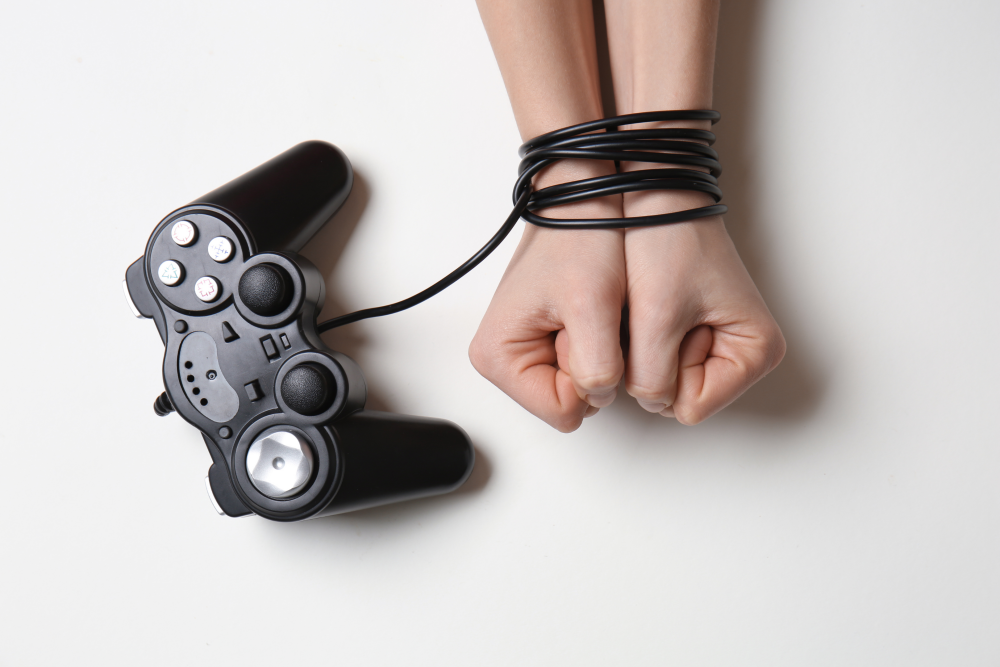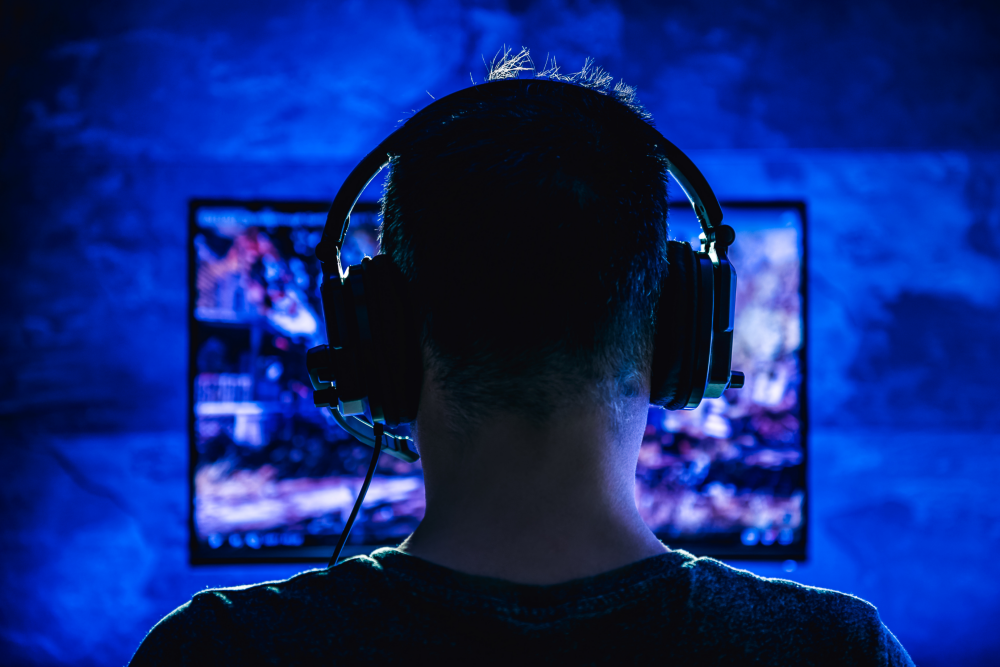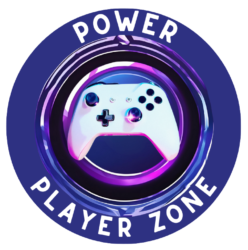
Don’t get me wrong… video games are great! But I’d be doing some disservice to you if I didn’t warn you about video game addiction.
It isn’t just about spending too much time with a controller in hand. It’s actually recognized by psychologists as a real disorder, sharing some traits with other behavioral addictions. What tends to kick things off is the rush you get from playing, mostly due to those irresistible dopamine hits.
That’s the feel-good chemical your brain releases when you’re having a good time, pushing you to keep coming back for more.
Digging deeper, the major player here is often the reward pathways in the brain. Games are designed to give you a hit of achievement with every level you pass or every high score you smash.
This release of dopamine makes you feel happy, and just like that, your brain is hooked, wanting to replicate those feelings over and over.
But it’s not all about what’s happening in your brain. There’s also a ton of environmental factors at play. One big thing is accessibility. Games are everywhere and so easy to get into nowadays, which just adds fuel to the fire.
Plus, there’s a strong social aspect. For some folks, gaming is a way to connect with others, building friendships and communities that might be hard to find in the real world. It’s these social bonds that often make it even trickier to take a step back.
So, what’s the main cause of gaming addiction?
It’s a mix of brain chemistry and the immersive, rewarding environment created by game developers, combined with personal and social situations. Recognizing these factors is the first step in understanding and addressing any gaming challenges you might be facing.
When Does Gaming Become Addictive?
Figuring out whether your gaming passion is just a hobby or has edged into addiction territory is a bit like trying to hit a moving target. There isn’t a one-size-fits-all number of hours when gaming is considered obsessive, but there are some signs that can help gauge where you’re at.
- Research Evidence – from a scientific perspective, studies suggest that excessive gaming is often seen when someone is glued to the screen for several hours every day, sometimes up to eight hours or more. But it’s really more about how it affects your life than the exact hours you’re clocking in. If your schooling, work, or social life is taking a hit, it’s a red flag that your gaming might be moving into a problem zone.
- Signs From Self-reflection – understanding when gaming tips into addiction requires looking at personal behavior. Is your gaming taking priority over important daily activities? Are thoughts about gaming persistent, even when you’re not playing? Recognizing these habits can act as a helpful mirror, reflecting whether your relationship with gaming is turning unhealthy.
Think of it like this: if gaming is becoming the dominant activity and you’re losing interest in what used to bring you joy or meaning, it’s time to take a closer look. Evaluate what’s changing in your lifestyle, and that might clue you in if gaming is no longer just a harmless pastime.
Remember, the goal here isn’t to demonize gaming but to keep it in check so it’s something you enjoy responsibly, without it overshadowing other aspects of your life.
Why Are Games So Alluring?

Video games have this magnetic pull that keeps people coming back, and it’s not just because they’re fun. Games are expertly crafted to tap into psychological triggers that make them hard to resist.
- Achievement – one major factor is the sense of achievement and progress. Every time you clear a level or unlock a new skill, you feel a burst of satisfaction and accomplishment.
- Escapism – this plays a huge role, too. Games offer a break from reality, letting players step into alternate worlds where they can be anyone and do anything. This escape can be super appealing, especially if things in real life feel overwhelming or mundane.
- Sense of Community – another big thing is the sense of identity and community games offer. Creating virtual identities allows people to express themselves in ways they might not feel comfortable doing in the real world. Plus, gaming communities can be incredibly tight-knit. Leaderboards and competitive play add a social dynamic that keeps players engaged, striving to beat others and themselves.
The mix of personal achievement, escapism, and social interaction is a potent combination that explains why games become such a focal point for many people. Recognizing these elements of allure can help individuals make informed decisions about their gaming habits, ensuring they maintain a balanced life.
Strategies to Regain Control: Overcoming Gaming Addiction
Taking back control from gaming addiction begins with self-awareness, acknowledging that there’s a problem. Recognizing the patterns that trigger excessive play is crucial. Are you gaming late into the night to avoid stress or tension in real life? Is it a way to escape boredom or anxiety? Identifying these triggers can help you understand what you’re truly seeking when you start gaming, and put in place steps to counteract the negative effects.
- Set Yourself Limits – once you know your triggers, it’s about setting realistic limits and goals. Start by carving out specific times for gaming, ensuring it’s balanced with other activities. Consider setting a timer to remind yourself to take breaks, helping you stick to the limits you’ve set.
- Consider A Different Environment – in some cases, you might need to change your environment to support new habits. This could mean keeping gaming equipment out of obvious areas or even uninstalling certain apps during busy periods. Finding new hobbies or activities can also fill the void that cutting back on gaming might create.
- Actively Seek Support – sometimes, tackling gaming addiction requires outside help. It’s totally okay to seek support from a therapist or counselor who specializes in behavioral addictions. Likewise, support groups, both online and offline, can offer encouragement and understanding from people with similar experiences.
Remember, overcoming gaming addiction is about finding balance, not about giving up something you love entirely.
With the right strategies, you can regain control while still enjoying the many benefits that games have to offer.
About Julianne
Julianne is the founder and writer for the blog articles here on Power Player Zone – a nurturing online space for gamers to learn more about their passion, no matter their background or identity. As an introverted female gamer for the past 5 years, Julianne strives for inclusivity in her mission to spread the joy of video games to everyone; for her, games aren’t just for fun – they allow us to gain insight into ourselves and the vibrant cultures and communities in which we live.
